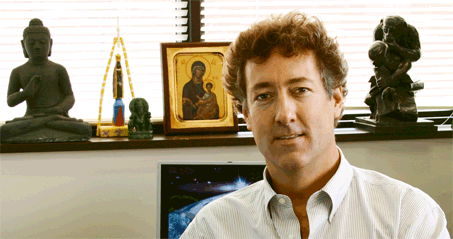Ilankai Tamil Sangam30th Year on the Web Association of Tamils of Sri Lanka in the USA |
|||
 Home Home Archives Archives |
Healing RiteSri Lanka needs 'political offensive' for peace, reconciliation: scholarby Lanka Business Online, May 24, 2008
Sri Lanka should commemorate the 25th anniversary of the July 1983 riots and put forward its best offer to the Tamil people as part of a political offensive to end the war and find peace and reconciliation, a US scholar said. William Grassie, a senior Fulbright Fellow, said the commemoration will be "healing" and "helpful" for Sri Lanka to show its commitment to ensure equal protection for all its citizens under the law. "The 1983 riots provide an opportunity to collect oral histories of survivors which can be translated and printed in newspapers and presented in TV documentaries," Grassie told a public seminar. "It will be important to emphasize the individual human tragedies, rather than to rehearse conflicting narratives about who is responsible for the ensuing civil war. "It would also be important to include oral histories of Sinhalese who helped to shelter Tamils from the mob violence," he said. Grassie says such a commemoration would send a message to the Tamils across the world that most Sinhalese recognize that a "terrible injustice" was done to their fellow citizens who deserve equal protection. Rampaging Mobs The riots not only sparked full scale war between Tamil guerillas and government forces but also fuelled hatred and suspicion between the two communities. Thousands of Tamils fled the country seeking asylum in western countries and others joined the Tamil militant groups including the LTTE in the country's north. Grassie, speaking about a best case scenario for Sri Lanka, at a public seminar said recognition is the first step in reconciliation and that the government's failure to protect its citizens from lawlessness in 1983 has to be publicly recognized. "The tone of the commemoration should be "never again" and to promote a vision of unified, peaceful and prosperous Sri Lanka, in which all citizens … are entitled to equal protection under the law," Grassie said. The near three-decade war has consumed resources and resulted in the deaths of thousands of Sri Lankans across the island. Military Campaign Last year, government forces made progress by gaining control of the eastern province after ousting Tamil Tiger guerillas from their jungle bases. With the government pushing for a military victory, the Army intensified operations against the Tigers in the northern, northwestern and north eastern regions. Intensified military action has triggered Tiger terror attacks against civilians, military personnel and government officials in the south. Grassie said despite a win on the military front Sri Lanka could still see a worst case scenario with a loss of democracy. Losing Democracy "The violence of the war will metastasize and a radical Tamil underworld will be created and will join a Sinhalese and Muslim underworld. "Muslims will systematically arm themselves in self defense feeling threatened from all sides," he said. Grassie says Sri Lanka could end up as a failed state, heavily indebted by war spending leading to runaway inflation, investments and aid drying up, tourism crippled, an exodus of upper and middle class youth overseas, hunger and disease on the rise and communal riots. According to Grassie even a worst case scenario could herald one of the greatest political and economic miracles of the twenty first century. He says a political offensive should be carried forward alongside the military offensive by the government to reach out to the Tamil population both in Sri Lanka and abroad and to the international community. Grassie says the government in reconciliation should forward its best offer to the Tamil people who have suffered the most during the civil conflict. "The international community says there has to be a political solution …so go ahead and develop a political solution and make the proposal now and make it publicly to the world," he said "Basically I would tell the LTTE the same thing. Put your best offer forward, make it publicly and let's stop this silliness." |
||
|
|||
